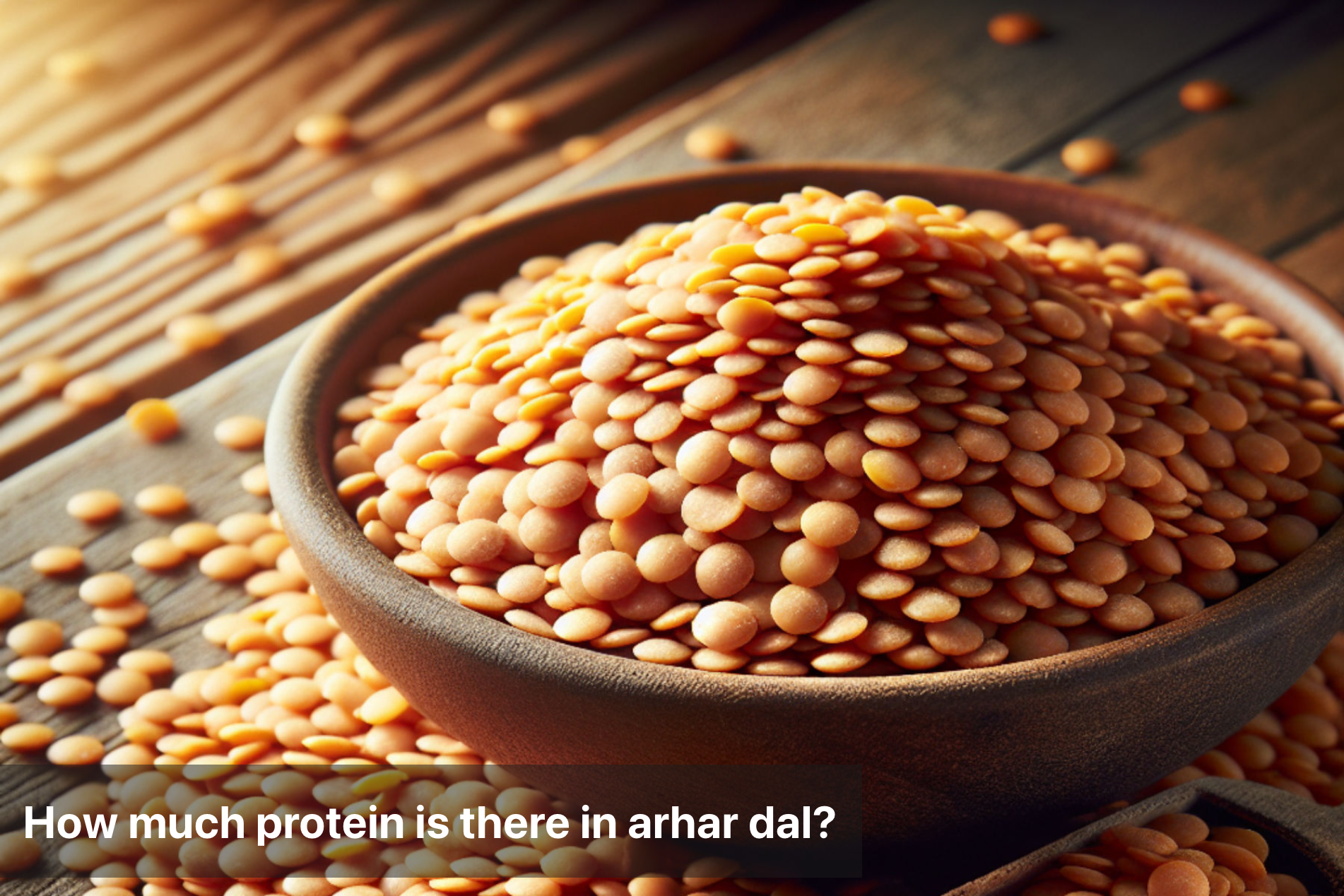
How much protein is there in arhar dal?
Arhar dal, also known as pigeon pea, is a staple in many Indian households and is a versatile ingredient that offers numerous nutritional benefits. This lentil is a powerhouse of essential nutrients, with one of its key components being protein. Protein is crucial for maintaining muscle health, supporting cell function, and overall well-being. In just 100 grams of arhar dal, you can find a significant amount of protein, making it an excellent source for those looking to increase their protein intake along with a balanced diet.
Arhar dal is not only rich in protein but also offers a good amount of dietary fiber, vitamins, and minerals. This lentil is low in fat and packed with antioxidants, making it a wholesome addition to your meals. Its versatility allows for a variety of dishes to be prepared, from comforting dals to hearty soups and delicious curries.
Including arhar dal in your diet can help you meet your daily protein requirements and boost your overall nutrient intake. Whether you are a vegetarian looking for plant-based protein sources or simply want to explore new ingredients, arhar dal is a nutritious and delicious option to consider.

Nutritional Profile of Arhar Dal
A 100g serving of Arhar Dal typically provides:
Energy |
335 calories |
Protein |
22g |
Fat |
1.5g |
Carbohydrates |
63g (out of which dietary fiber makes up 15g) |
Calcium |
130mg |
Iron |
7.5mg |
Benefits of Protein in Arhar Dal
Rich in Protein: Arhar dal is a significant source of plant-based protein, making it an essential component of vegetarian and vegan diets.
Nutrient Dense: Arhar dal contains essential nutrients such as folate, iron, magnesium, and potassium, contributing to overall health and well-being.
Heart Health: The fiber, potassium, and magnesium content in arhar dal support heart health by regulating blood pressure levels and reducing the risk of cardiovascular diseases.
Boosts Energy: Being a rich source of complex carbohydrates, arhar dal provides sustained energy, making it an excellent choice for athletes and those with active lifestyles.
Supports Muscle Health: The protein content in arhar dal helps in muscle repair, growth, and maintenance, making it beneficial for individuals engaged in physical activities or exercise.
Improves Immunity: Arhar dal contains various vitamins and minerals that support immune function, helping the body fight off infections and diseases.
Ways to Incorporate Arhar Dal into Your Diet
To incorporate Arhar Dal into your diet and enhance your protein intake, here are some simple yet effective tips and recipes:
Tantalizing Tadka: Start by cooking Arhar Dal with a tempering of ghee, cumin seeds, and mustard seeds. This classic tadka adds a burst of flavor to the humble lentil.
Protein-Packed Paratha: Mix cooked Arhar Dal with whole wheat flour, spices, and herbs to make a protein-rich dough for parathas. Serve with a side of yogurt or pickle for a balanced meal.
Dal Delight Soup: Blend cooked Arhar Dal with vegetables like carrots, tomatoes, and spinach to create a hearty and nutritious soup. Season with cumin and coriander for an extra zing.
Crunchy Dal Chaat: Roast soaked Arhar Dal until crispy and toss with chopped onions, tomatoes, and a squeeze of lemon juice. This crunchy snack is a perfect protein-packed munch.
Dal Khichdi: Combine Arhar Dal with rice, seasonal vegetables, and a mix of spices to prepare a comforting khichdi. Top it with ghee and fresh coriander for added richness.
-
Protein Power Bowl: Create a nourishing bowl with a base of steamed rice, Arhar Dal, sautéed greens, and a dollop of homemade yogurt. This wholesome meal is not only delicious but also loaded with protein.
By incorporating these tips and recipes into your meal planning, you can easily boost your protein intake with the goodness of Arhar Dal.

Arhar Dal and Protein: Exploring the Nutritional Profile
Arhar dal is a versatile and nutritious ingredient that can greatly benefit your overall health and well-being. With its high protein content, incorporating arhar dal into your diet can enhance your nutrition intake significantly. Protein plays a crucial role in various bodily functions, such as tissue repair, muscle growth, and enzyme production.
In a 100g serving of arhar dal, you can find a substantial amount of protein, making it an excellent plant-based protein source. This nutrient-dense legume not only provides protein but also offers essential vitamins, minerals, and dietary fiber. By including arhar dal in your meals regularly, you can improve your protein intake and promote better health outcomes.
The significance of arhar dal in a balanced diet cannot be understated. Its rich protein content makes it a valuable addition to vegetarian and non-vegetarian diets alike. Whether you are seeking to increase your protein intake or simply looking to diversify your meals, arhar dal can be a delicious and nutritious choice. Make a conscious effort to incorporate this wholesome legume into your diet for a balanced and protein-rich eating experience.
This Blog post is an initiative by Lo! Foods, to provide accurate and Nutritionist / Doctor approved information related to Health. Lo! Foods is India's leading brand for Everyday Functional Foods. Foods designed for specific Health conditions or Needs. Lo! Foods also runs India's largest range of Low Carb Healthy Cloud Kitchens, under the brand names of Lo!, ProteinChef, ATH (All Things Healthy) and DiabeSmart.















Leave a comment
Your email address will not be published.